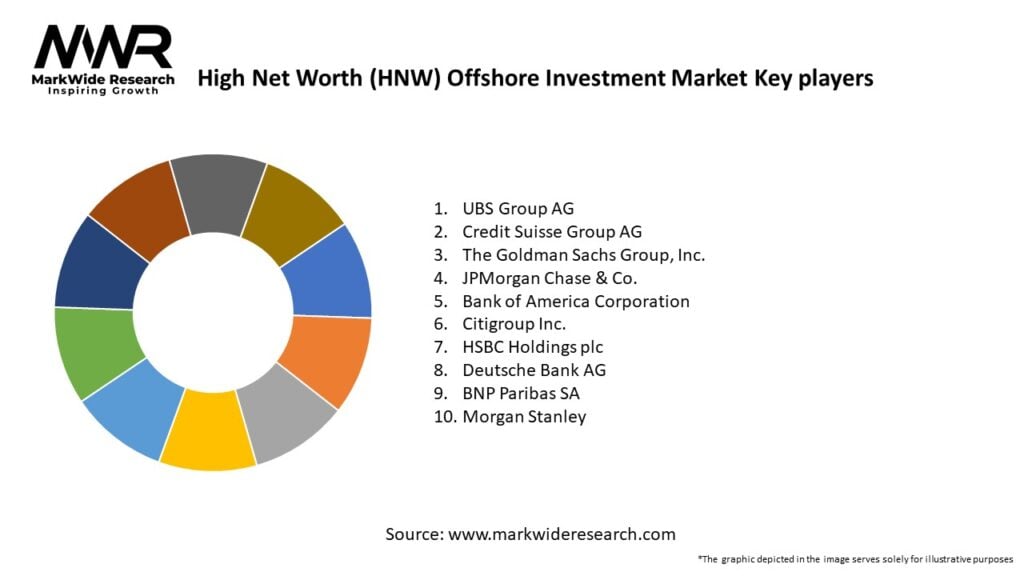The Future of Offshore Investment and Just How It's Advancing in the Global Market
The Future of Offshore Investment and Just How It's Advancing in the Global Market
Blog Article
Just How Offshore Financial Investment Works: A Step-by-Step Malfunction for Capitalists
Offshore investment offers an organized pathway for capitalists seeking to optimize their economic strategies while leveraging international chances - Offshore Investment. The process begins with the careful choice of a jurisdiction that aligns with a financier's objectives, followed by the establishment of an account with a trustworthy overseas organization. This methodical technique not just permits profile diversity yet likewise requires ongoing administration to navigate the complexities of worldwide markets. As we discover each step in information, it comes to be obvious that understanding the nuances of this investment strategy is essential for achieving optimal outcomes.

Recognizing Offshore Financial Investment
Comprehending overseas investment entails acknowledging the tactical benefits it uses to people and firms seeking to maximize their economic profiles. Offshore financial investments commonly describe properties kept in a foreign jurisdiction, often characterized by beneficial tax obligation regimens, regulatory atmospheres, and personal privacy protections. The main objective behind such financial investments is to enhance capital risk, diversity, and growth administration.

Capitalists can access a vast variety of financial tools through offshore venues, consisting of stocks, bonds, mutual funds, and realty. These investments are usually structured to adhere to local legislations while providing adaptability in terms of property allowance. Additionally, overseas financial investment approaches can enable people and organizations to hedge versus domestic market volatility and geopolitical dangers.
One more key facet of overseas financial investment is the capacity for improved privacy. Numerous offshore territories have rigorous confidentiality regulations, which can secure an investor's economic information from public disclosure. Nonetheless, it is critical for investors to continue to be certified with their home country's tax obligation guidelines and coverage requirements, as non-compliance can bring about extreme charges. Consequently, a comprehensive understanding of both the advantages and commitments associated with overseas investments is necessary for educated decision-making.
Advantages of Offshore Spending
Capitalists typically turn to offshore spending for its many benefits, including tax obligation efficiency, property defense, and portfolio diversification. Among the main advantages is the possibility for tax optimization. Many overseas jurisdictions supply positive tax obligation programs, allowing financiers to lawfully reduce their tax obligation obligations and maximize returns on their financial investments.
Furthermore, offshore accounts can provide a layer of property defense. Offshore Investment. By putting possessions in politically steady territories with solid privacy laws, capitalists can protect their wide range from prospective legal claims, financial institutions, or financial instability in their home countries. This kind of defense is particularly interesting high-net-worth individuals and business owners facing litigation threats
Additionally, offshore investing helps with profile diversification. Accessing international markets allows capitalists to discover possibilities in numerous asset courses, including property, supplies, and bonds, which may not be available domestically. This diversification can minimize overall portfolio threat and enhance potential returns.
Ultimately, the benefits of overseas investing are compelling for those looking for to enhance their monetary techniques. It is crucial for financiers to completely comprehend the implications and regulations associated with offshore financial investments to ensure conformity and accomplish their financial objectives.
Selecting the Right Territory
Selecting the appropriate territory for offshore investing is an important choice that can substantially affect a financier's monetary approach. The appropriate jurisdiction can offer different advantages, consisting of desirable tax obligation frameworks, asset security legislations, and governing settings try this site that line up with a capitalist's goals.
When choosing a jurisdiction, think about aspects such as the political security and economic health of the nation, as these elements can influence financial investment security and returns. In addition, the lawful framework bordering international investments must be examined to guarantee compliance and protection of assets. Nations understood for durable lawful systems and openness, like Singapore or Switzerland, typically infuse greater self-confidence among capitalists.
Furthermore, evaluate the tax obligation ramifications of the territory. Some countries offer appealing tax obligation incentives, while others may impose strict reporting needs. Comprehending these subtleties can help in enhancing tax obligations.

Steps to Establish an Offshore Account
Establishing an overseas account includes a series of methodical steps that make sure compliance and safety. The primary step is selecting a credible offshore monetary establishment, which must be accredited and regulated in its territory. Conduct extensive research to evaluate the establishment's reputation, services provided, and consumer evaluations.
Next, gather the required documents, which typically includes identification, proof of address, and details regarding the source of funds. Various jurisdictions may have varying requirements, so it is essential to confirm what is required.
As soon as the documents is prepared, launch the application process. This might include filling out kinds on the internet or personally, depending upon the establishment's methods. Be planned for a due persistance process where the bank will confirm your identity and evaluate any type of possible dangers related to your account.
After authorization, you will get your account details, enabling you to money your overseas account. It is a good idea to preserve clear documents of all deals and abide by tax policies in your house country. Developing the account appropriately sets the structure for effective overseas investment administration in the future.
Managing and Monitoring Your Investments
When an overseas account is this content successfully established, the focus shifts to managing and monitoring your financial investments efficiently. This important stage entails a systematic strategy to ensure your possessions straighten with your economic goals visit this site right here and run the risk of resistance.
Begin by developing a clear investment approach that details your purposes, whether they are outstanding conservation, earnings generation, or growth. Frequently assess your portfolio's performance against these criteria to evaluate whether adjustments are needed. Utilizing monetary monitoring tools and platforms can assist in real-time tracking of your investments, offering understandings into market patterns and possession allocation.
Involving with your offshore economic advisor is crucial. They can supply competence and assistance, assisting you browse complicated worldwide markets and regulative atmospheres. Arrange routine evaluations to discuss performance, assess market conditions, and recalibrate your approach as required.
Additionally, remain informed concerning geopolitical advancements and financial indications that might affect your financial investments. This proactive strategy allows you to respond without delay to changing situations, ensuring your offshore portfolio stays durable and lined up with your investment goals. Eventually, diligent administration and recurring monitoring are crucial for maximizing the benefits of your offshore financial investment method.
Conclusion
In final thought, offshore investment provides a strategic avenue for portfolio diversification and risk monitoring. By engaging and choosing an appropriate jurisdiction with reliable banks, capitalists can browse the complexities of international markets effectively. The methodical technique laid out makes certain that capitalists are well-appointed to maximize returns while sticking to lawful frameworks. Continued tracking and partnership with economic consultants remain necessary for keeping a dexterous investment technique in an ever-evolving global landscape.
Offshore investment provides a structured pathway for financiers looking for to maximize their economic strategies while leveraging international chances.Understanding offshore investment involves identifying the tactical advantages it offers to people and firms seeking to enhance their financial portfolios. Offshore financial investments normally refer to properties held in an international jurisdiction, commonly identified by favorable tax routines, governing atmospheres, and personal privacy protections. In addition, overseas financial investment approaches can make it possible for organizations and people to hedge versus domestic market volatility and geopolitical dangers.

Report this page